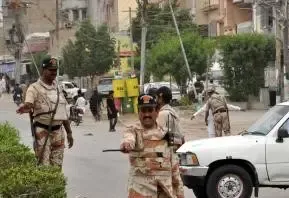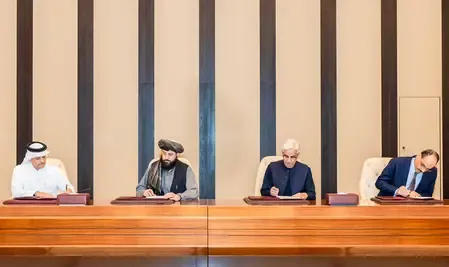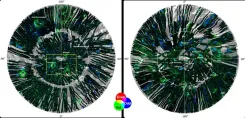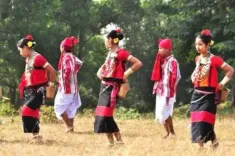Will Bangladesh's NCP Maintain Its Stance on the July Charter Amid Political Tensions?
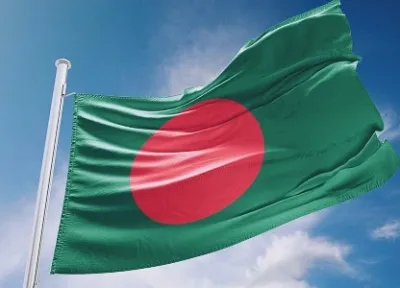
Synopsis
Key Takeaways
- The NCP insists on no dissent in the July charter.
- The BNP has accused the National Consensus Commission of deception.
- Political reforms are being obstructed by some parties.
- Upcoming elections are set for February 2026.
- Public demand for change is at the forefront of political discussions.
Dhaka, Nov 8 (NationPress) Amid escalating political strife in Bangladesh, the National Citizen Party (NCP) has declared that there will be no “note of dissent” concerning the July charter, according to reports from local media.
This statement comes in the wake of allegations from the Bangladesh Nationalist Party (BNP), which recently accused the National Consensus Commission of “deceiving” the populace and political entities with its definitive recommendations regarding the July Charter. The BNP has demanded immediate revisions to include dissenting viewpoints.
“The consensus we have established will remain, and the public will ultimately determine the outcome. Should they agree, those decisions will be enacted,” quoted NCP Convener Nahid Islam during an event in Dhaka on Friday, as reported by The Daily Star.
“The Chief Advisor Muhammad Yunus must issue the July charter, aligning it with the popular uprising. There will be no note of dissent in the July charter,” he emphasized.
Nahid further remarked, “The populace is eagerly anticipating change. Without this change, all initiatives—be it the uprising, the elections, or the consensus commission—will falter. If only select factions or political parties gain from the uprising, that cannot be considered genuine change.”
He expressed optimism about progressing toward the upcoming elections following the establishment of a legal foundation for the July charter.
Earlier this week, Nahid accused the BNP and the radical Islamist group Jamaat-e-Islami of hindering reform initiatives and conspiring to delay the elections scheduled for February 2026, as reported by local media.
Speaking at a press conference in Dhaka, Nahid claimed that the BNP's submission of “notes of dissent” regarding crucial reform matters has sown doubt among the public and within its own ranks about its commitment to reform.
He also suggested that Jamaat's actions could indicate attempts to postpone the elections.
“One faction is obstructing reforms while another may be trying to delay the elections,” Nahid stated.
Last week, NCP’s chief coordinator Nasiruddin Patwary described the BNP's dissent as a “note of cheating.”
Bangladesh is currently grappling with increasing uncertainty and political unrest as the elections approach.
Parties that previously collaborated with Yunus to dethrone the democratically elected Awami League government, led by Sheikh Hasina, now find themselves in conflict over reform proposals.


